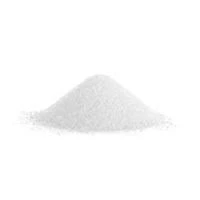
Understanding Sorbic Acid as a Food Preservative and Its Benefits for Food Safety
Sorbic Acid A Versatile Food Preservative
Sorbic acid, a remarkable compound with a unique history, has gained recognition as a vital food preservative used widely across the globe. This organic compound, formally known as 2,4-hexadienoic acid, was first discovered in the early 19th century and has since become an indispensable ingredient in the food industry. This article explores the properties, applications, safety, and controversy surrounding sorbic acid, shedding light on why it deserves a spot in the pantry.
Chemical Properties and Mechanism of Action
Sorbic acid is a natural unsaturated fatty acid that possesses antimicrobial properties, making it particularly effective against yeasts, molds, and certain bacteria that can spoil food. It is typically found in its potassium salt form, known as potassium sorbate, which is more soluble in water and, therefore, the preferred option in food applications.
The mechanism by which sorbic acid acts as a preservative is straightforward yet effective. When added to food products, it disrupts the ability of fungal and bacterial cells to reproduce by inhibiting various metabolic processes. This results in a longer shelf life and helps maintain the flavor and quality of food items. Sorbic acid is especially effective in products such as cheese, baked goods, beverages, and even certain types of meats.
Widespread Applications in Food Industry
Sorbic acid is used extensively in the food industry, making it one of the most popular preservatives on the market. Its versatility allows it to be incorporated into a diverse range of food products. For example, in the dairy industry, it prevents mold growth on cheese surfaces; in the baking sector, it helps maintain the freshness of breads and pastries. Additionally, sorbic acid is used in juice production to inhibit yeast fermentation, thereby prolonging shelf life.
Beyond the food sector, sorbic acid is also employed in the cosmetics and pharmaceutical industries, where its antimicrobial properties help preserve creams, lotions, and various over-the-counter medications. This broad applicability highlights sorbic acid's importance not just in food preservation but also in maintaining product integrity across multiple domains.
sorbic acid food preservative

Safety and Regulatory Status
The safety of sorbic acid has been extensively studied, and it is generally recognized as safe (GRAS) when used within specified limits. Regulatory agencies such as the U.S. Food and Drug Administration (FDA) and the European Food Safety Authority (EFSA) have approved its use in food products. The acceptable daily intake is regarded as safe for consumers, which further provides reassurance to manufacturers and consumers alike.
However, as with any food additive, there is a potential for individual sensitivities. While rare, some individuals may exhibit allergic reactions to sorbic acid, leading to concerns over its consumption. These reactions can manifest in various symptoms, and it is advisable for individuals with known sensitivities to read labels carefully and avoid products containing this compound.
Controversy and Consumer Perception
Despite its safety profile, sorbic acid has not escaped scrutiny in recent years, particularly in the realm of clean-label products. Increasing consumer demand for natural and minimally processed foods has fostered skepticism surrounding synthetic additives. As a result, brands are often reformulating products to eliminate sorbic acid and other preservatives, opting instead for natural alternatives. While such alternatives may indeed be seen as more appealing for health-conscious consumers, the efficacy and cost-effectiveness of natural replacements are often debated.
Conclusion
In summary, sorbic acid emerges as a crucial player in the world of food preservation. Its effectiveness, versatility, and approved safety status make it a valuable tool in combating spoilage in various food products. As the food industry continues to evolve, balancing the demand for natural ingredients with the need for safe and effective preservation methods is key. Sorbic acid, with its long history and proven track record, remains a cornerstone of food safety, ensuring that consumers enjoy fresh and tasty products while also navigating the complexities of modern dietary preferences. The continued dialogue surrounding food additives like sorbic acid will help shape the future of food preservation, fostering a better understanding of how to maintain food quality in a health-conscious world.
-
Comprehensive Guide to Acetic Acid as Preservative: Benefits, Uses & Future TrendsNewsNov.24,2025
-
What Is a Food Additive? Global Insights, Applications & Future TrendsNewsNov.24,2025
-
968 Sweetener: The Modern Solution for Health-Conscious SweeteningNewsNov.23,2025
-
Discover the Benefits and Uses of 965 Sweetener (Erythritol) | Tenger ChemicalNewsNov.23,2025
-
961 Sweetener - A Next-Gen Sugar Alternative for Health and IndustryNewsNov.23,2025
-
Understanding 960 Sweetener: The Modern Sugar Alternative for Health and IndustryNewsNov.22,2025
-
Everything You Need to Know About 955 950 Sweeteners – Benefits, Uses, and TrendsNewsNov.22,2025
Hebei Tenger Chemical Technology Co., Ltd. focuses on the chemical industry and is committed to the export service of chemical raw materials.
-

view more DiethanolisopropanolamineIn the ever-growing field of chemical solutions, diethanolisopropanolamine (DEIPA) stands out as a versatile and important compound. Due to its unique chemical structure and properties, DEIPA is of interest to various industries including construction, personal care, and agriculture. -

view more TriisopropanolamineTriisopropanolamine (TIPA) alkanol amine substance, is a kind of alcohol amine compound with amino and alcohol hydroxyl, and because of its molecules contains both amino and hydroxyl. -

view more Tetramethyl Thiuram DisulfideTetramethyl thiuram disulfide, also known as TMTD, is a white to light-yellow powder with a distinct sulfur-like odor. It is soluble in organic solvents such as benzene, acetone, and ethyl acetate, making it highly versatile for use in different formulations. TMTD is known for its excellent vulcanization acceleration properties, which makes it a key ingredient in the production of rubber products. Additionally, it acts as an effective fungicide and bactericide, making it valuable in agricultural applications. Its high purity and stability ensure consistent performance, making it a preferred choice for manufacturers across various industries.





